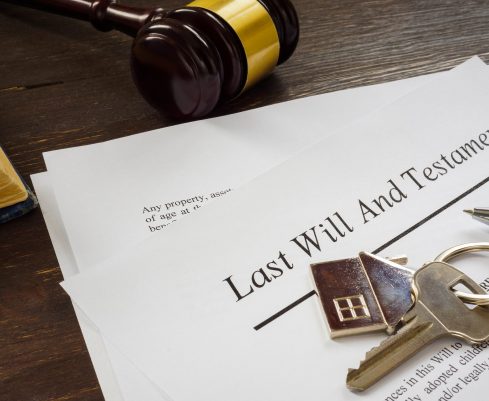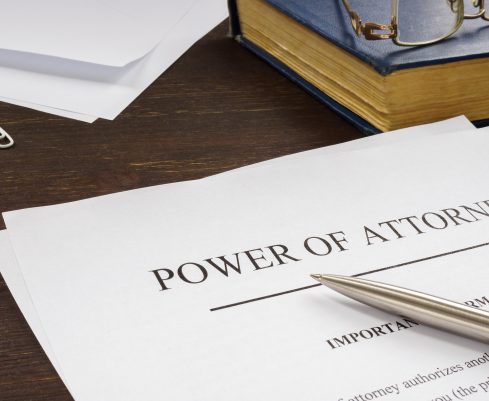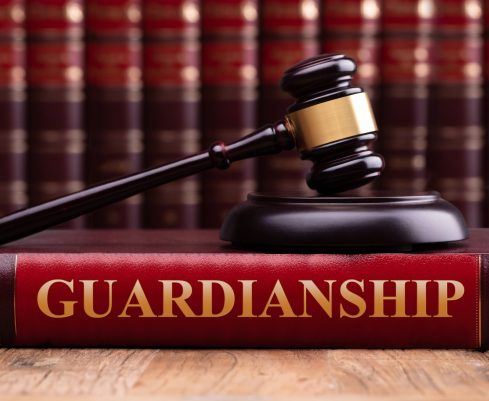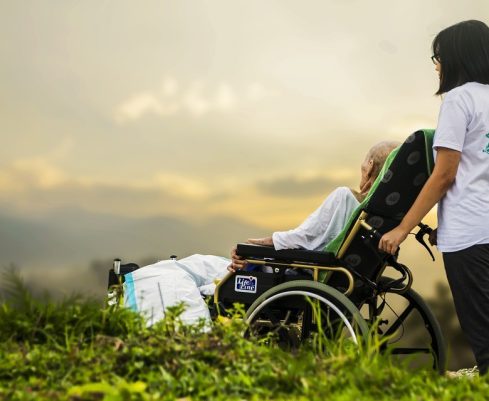Guardianship in New Jersey is the legal process by which the court appoints a guardian to make decisions for an incapacitated person. The guardian has the ability and responsibility to make personal and financial decisions for the “ward” or the person requiring care. Guardianship may be required for an elderly individual who has become unable to make important decisions, a special needs child who is reaching the age of 18, or a minor who does not have parental care. In each case, a guardian will exercise control over that person’s property, finances, and best interests.
When is a guardianship necessary?
In New Jersey, a person is incapacitated when they are unable to make decisions or understand the consequences of their actions, both physically and mentally. There are two types of guardianships: guardianship of the person and guardianship of the property. Depending on the situation, a guardianship of one or both may be appropriate.
Guardianships can also be general in nature or limited. A general guardianship is appropriate for people who have been found incapable of making any decisions on their own. A limited guardianship is appropriate for people who are capable of making some decisions in one or more of six areas: medical, residential, educational, legal, vocational, and financial.
Guardianship powers include, but are not limited to the following:
- Acceptance or denial of medical care;
- Control of financial and contractual affairs (i.e., bookkeeping, banking, finances, investments);
- Estate and asset protection planning;
- Choice of where the loved one resides;
- Selection of professionals to assist the incapacitate person in his/her essential personal needs;
- Restrictions over personal freedom, choice, and mobility (i.e., driving and forfeiture of driving licenses);
- Restrictions and limitations over visitation, solicitations & contact by undesirable persons, including predatory family members
There are some things to keep in mind when considering a guardianship:
Only the Court can change the appointed guardian or co-guardians for an incapacitate person. Once you have been named a guardian, a co-guardian can be appointed, but this requires Court approval. If a guardian dies, a successor is not automatic, even if the guardian’s Will specifically names a successor. Court approval is required.
A person cannot be declared incapacitated because he or she makes irresponsible or foolish decisions. The law requires the person to show a lack of ability to make sound decisions and govern one’s own affairs. For example, a person may not be declared incompetent simply because he or she spends money in ways that seem odd to someone else. Also, a medical diagnosis of a developmental disability or mental illness is not, by itself, enough to medically support a guardianship.
An alternative to guardianship is a power of attorney (“POA”). A POA is significantly less expensive than guardianship, but the individual with a disability must have the basic capacity or understanding that he or she is appointing someone to make decisions on his or her behalf. Once someone lacks the ability to govern their affairs, they cannot grant a POA and a guardianship is necessary.
What Is the Process for Applying for a Guardianship?
A proposed guardian must file a Verified Complaint in the Superior Court of New Jersey to institute a guardianship action. The Complaint must be supported by certifications from two doctors who state that the alleged incapacitated person is incapable of governing his or her affairs. Other documents related to the alleged incapacitate person’s finances and the proposed guardian’s qualifications must also be submitted. An attorney will be appointed by the Court to represent the alleged incapacitated person’s interests in the proceedings. That attorney will meet with the alleged incapacitated person and submit a report of his or her findings to the Court. The Court will hold a hearing to make a determination as to incapacity and the appointment of a guardian.
A proposed guardian can represent themselves in Court throughout this process or a guardianship attorney can represent and advise the guardian through the process. If you feel you may need representation or guidance through the guardianship application process, please call one of the attorneys at Ward, Shindle & Hall.
Power Of Attorney (POA)
A “power of attorney” or POA, is a written document in which a person (the “principal”) authorizes another person, (the “attorney-in-fact”) to perform certain duties as the principal’s agent.
In New Jersey, there are four types of POA documents that are commonly executed by principals:
General Power of Attorney
With a general power of attorney, the principal authorizes his/her agent to act on his/her behalf in a wide variety of situations, including financial matters and legal matters. The general POA should be granted to a very trusted attorney-in-fact due to the wide array of powers it grants. The general POA goes into effect immediately and ends upon the incapacitation or death of the principal. It is only valid while the principle is alive and competent.
Durable Power of Attorney
A Durable POA goes into effect immediately and differs from the general POA in that it remains valid despite the disability or incompetency of the principal. This is sometimes used with elderly individuals preparing for the onset of Alzheimer’s or other debilitating diseases and gives a child broad leverage to manage their affairs even after they become incompetent. A durable power of attorney ends only upon the death of the principle.
Springing Power of Attorney
The Springing POA goes into effect only when the principal becomes incapacitated. While this may sound ideal for many situations, in reality the burden of proof for legally establishing that the “springing event” has occurred can sometimes be difficult to establish. For this reason, most attorneys prefer the Durable POA.
Limited Power of Attorney
A limited POA grants an individual only particular rights to act in a specific area and can have a time limit that expires. For instance, you may grant your lawyer the right to execute closing documents on your behalf at a real estate closing. Limited POAs can be drafted to suit most situations that arise where the principal requires another to act on their behalf for a limited purpose and time period.
Why Execute a POA?
By executing a durable POA before you become incapacitated, you save your loved ones valuable time and money that would otherwise be spent on a guardianship action. If you do not have a POA in place before you become incapacitated, you cannot execute a POA and a guardianship action would be necessary.
Do I need an Attorney to establish POA?
It is not recommended that you attempt to draft a POA yourself or by using a form you might find online. New Jersey has specific requirements for establishing a valid POA that an experienced attorney can draft for you. If you have questions about POAs or wish to draft one as part of your estate planning, please contact the lawyers at Ward, Shindle & Hall.
All partners of the firm have handled various civil litigation matters from complex business and contract disputes to estate litigation, employment litigation and small claims court and landlord-tenant matters. If you are sued, or need to protect your legal rights in any way, it is best to have an experienced litigator represent you.
At our firm, we understand that litigation can be a daunting and stressful process, which is why we strive to provide our clients with personalized attention and support throughout the entire process. Our attorneys have a wealth of experience representing clients in a variety of civil litigation matters and are dedicated to achieving the best possible outcome for each and every client.
When it comes to civil litigation, there is no one-size-fits-all approach. Each case is unique, and our attorneys work closely with clients to develop a tailored strategy that takes into account their individual needs and goals. We understand that litigation can be time-consuming and expensive, which is why we explore all possible avenues for resolving disputes, including negotiation, mediation, and arbitration.If you are facing a legal dispute, it is important to act quickly and seek the advice of an experienced litigator. The sooner you have an attorney on your side, the better your chances of achieving a favorable outcome.
Want To Learn More About POA & Guardianships?
POA & Guardianship
Supplemental Needs Trusts in New Jersey
Supplemental needs trusts (SNT), also known as special needs trusts, are a legal arrangement that allows a disabled person to have assets held by a...Continue reading→
End-of-Life Decisions: What to Consider and Why it’s Important
While it can seem morbid, making end-of-life decisions is important to both your estate and your loved ones. There is a lot to consider, which...Continue reading→
A Properly Executed Will: Lessons from Aretha Franklin’s Estate Battle
Aretha Franklin’s estate battle teaches us lessons about a properly executed will. The recent jury verdict in the case of Aretha Franklin’s estate has shed...Continue reading→
New Jersey Guardianship Application Process – General Overview
Filling out a guardianship application process in New Jersey may become necessary once a loved one becomes unable to care for themselves or manage their...Continue reading→
When is a Guardianship or a Power of Attorney Appropriate?
Power of attorney and guardianships are two legal tools whereby one person helps or makes legal decisions for another. In both scenarios, an individual is...Continue reading→
What Are Your Rights as a Trust Beneficiary?
As a trust beneficiary, it is important to understand your specific rights in order to protect your interest in trust assets. What is a Trust...Continue reading→
An Overview of Minor Trusts in New Jersey
Minor trusts can be helpful in terms of distributing designated assets to an individual on your terms. If you are the parent, guardian or relative...Continue reading→
Drafting a Power of Attorney in New Jersey
Drafting a power of attorney (“POA”) is an important step in the estate planning process. However, there are some important factors and choices to make...Continue reading→
When is a Guardianship in New Jersey Necessary?
Guardianship in New Jersey is a legal service Ward Shindle & Hall Attorneys excel at, guardianship over a loved one may be considered in a...Continue reading→
NJ Updates Guardianship Rules to Provide Better Protections for the Incapacitated Person
NJ recently updated the guardianship rules to Provide Better Protections for the Incapacitated Person. With the social commentary surrounding the #FreeBritney movement and the award-winning...Continue reading→
#FreeBritney – Star’s Legal Battle Shines Spotlight on Conservatorship Law
The #FreeBritney movement is one started by fans of pop-star Britney Spears to support her in efforts to end a Conservatorship Law over her assets....Continue reading→
Plaintiff Can Not Be Forced To Accept Settlement She Refused Absent Guardianship Action
Parties involved in lawsuits have a fundamental right to control the direction of that lawsuit, subject only to the strictest procedural safeguards in cases of...Continue reading→












